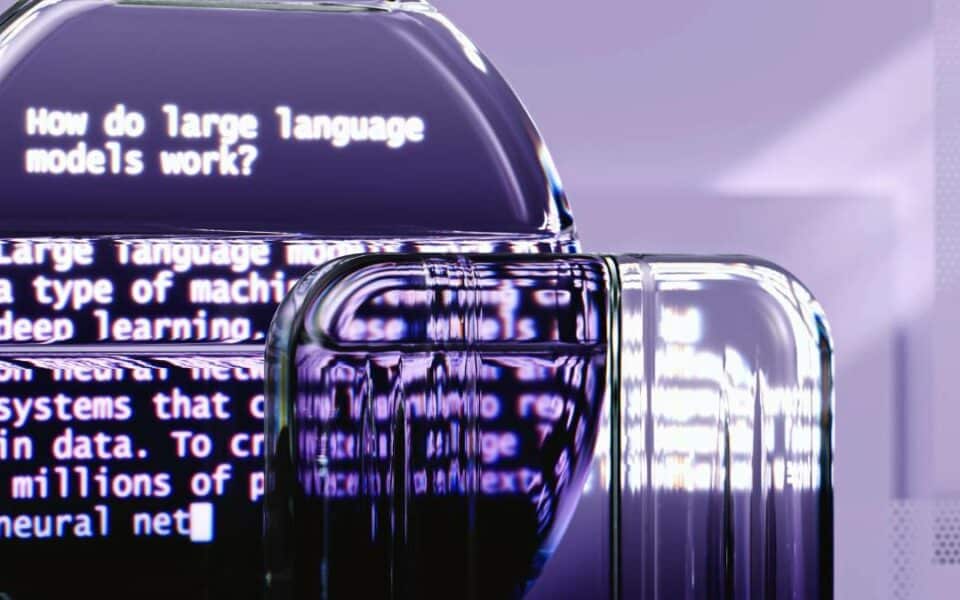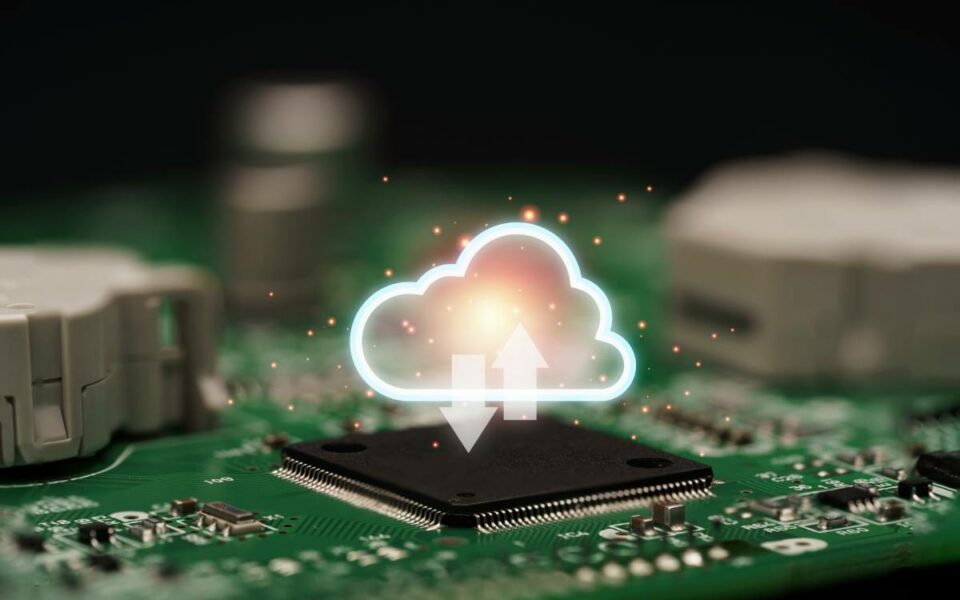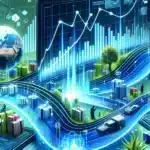
Revolutionizing E-commerce: The Impact of Big Data
8 September 2023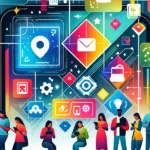
Empowering with Custom Apps
30 October 2023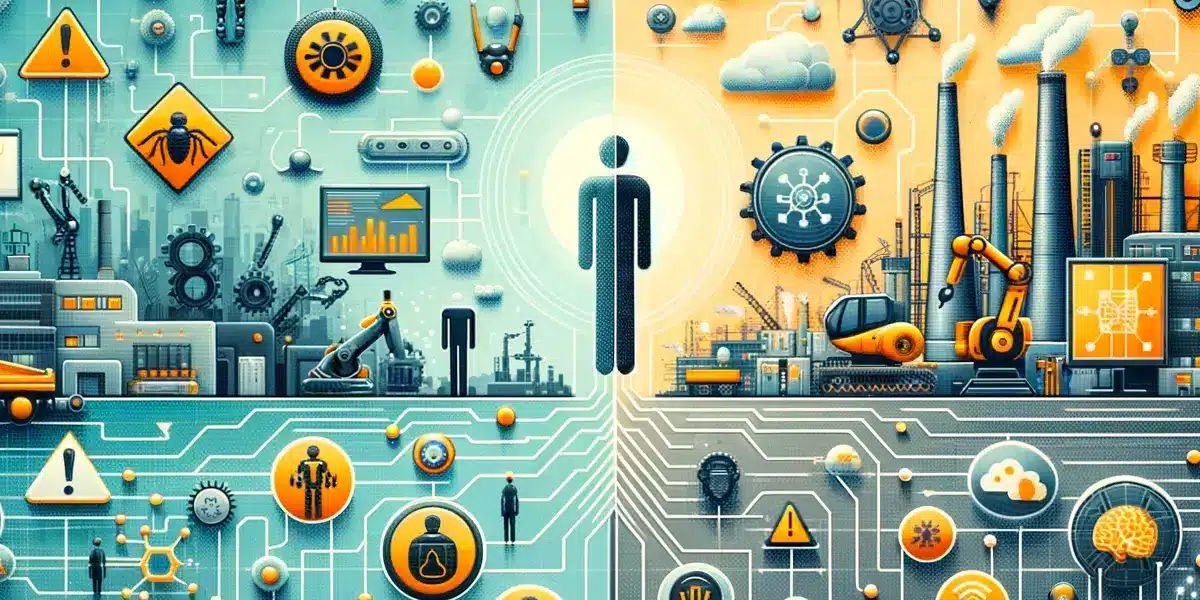
Industry 4.0 means another revolution in manufacturing through the integration of digital technologies and the Internet in industrial processes. It focuses on how the integral constituent of devices, automation, and data turning into smart systems are not only efficient but responsive.
Understanding Industry 4.0 requires a look into the historical context of industrial revolutions. It has been able to show a gigantic leap in industrial capabilities from the mechanization in the 18th century to the complete digitalization in this 21st century.
Industry 4.0 in the modern world is acting as an energetic leverage for the world economy and defines a new age for innovation, efficiency, and competitiveness. This goes way beyond manufacturing to various other sectors influenced by it and influencing the way societies are run and develop.
Opportunities in Industry 4.0:
Internet of Things (IoT)
Industry 4.0 uses IoT to connect all devices and machines of industries physically, due to which they communicate and share data in real-time. This merely means that inter-networking will bring efficiency, reduce downtime, and open new ways, as in predictive maintenance.
Connected Devices and Systems
This is interconnectivity of devices and systems, which facilitates free, smooth information flow, hence the comprehensive monitoring and control of these. Inter-relatedness confers agility in decision-making and optimization of the processes in place.
Big Data and Analytics Applications
Integrate big data analytics simply means delivering actionable insights from huge datasets. It exposes informed decision-making, optimization of processes, and identification of trends, which is very critical for future strategies.
Predictive Maintenance and Optimization
Enablers of predictive maintenance through data analytics in reducing downtime. Proactive identification of potential issues can optimize equipment performance and make the equipment potentially last 2 to 3 times longer.
Automation and Robotics
It can be explained as the manufacturing of smart applications through robotics and automation to bring increased efficiency and accuracy in the manufacturing process. Error-reducing process-flow automation systems drastically increase the overall productivity.
Augmented Reality in Manufacturing Processes
For this 4.0 industry, augmented reality is an overlay of details in the physical manufacturing environment. It helps technology for training, maintenance, real-time decision support.
Tailored Products and Services
The 4.0 industry enables the production of high custom-made products that a singular customer may need. This improves the customers’ satisfaction; hence, the loyalty they hold toward the brand.
Mass Customization Trends
Mass customization trends are a hybrid approach that marries the benefits of large-scale production with flexibility. Industry 4.0 opens doors to varied and efficient customer preferences.
Industry 4.0 Technologies
Industry 4.0 refers to a wide range of technologies driving the transformation of manufacturing processes, all bundled together. This transformation relates to, among others, the Internet of Things, Industrial Internet of Things, Cyber-Physical Systems, Smart Manufacturing, Smart Factories, Cloud Computing, Cognitive Computing, and Artificial Intelligence.
Challenges in Implementing Industry 4.0
Increased Vulnerability to Cyber Threats
All this very extensive connectivity in Industry 4.0 gives rise to new pathways of cyber threats and, hence, becomes a giant challenge to the safeguarding of sensitive data and systems from the vices of these cyber-attacks.
Ensuring Data Privacy and Protection
Data will be the building block of Industry 4.0, and therefore robust mechanisms should be put in place with regard to privacy and security. Actually, this might turn out to be the greatest hindering factor in balancing connectivity with security.
Skill Gaps and the Need for Upskilling
Industry field 4.0 implies that an organization necessarily requires competent labor to shoulder responsibilities for management of such complex and advanced technologies. This helps to bridge any gaps in existing skills and upscales an organization’s workforce.
Managing the Transition from Traditional to Smart Manufacturing
The transition from traditional manufacturing to smart manufacturing will require very careful planning and management, wherein reskilling of the current manpower takes place with the seamless integration of new technologies that will pose many formidable challenges.
Investment in New Technologies and Infrastructure
The 4th Industrial Revolution calls for huge investments in new technologies and infrastructures. More so, it might be a barrier to the high initial cost to smaller businesses that try to catch up with such advanced practices.
Financial Challenges for Smaller Businesses
This could, in turn, eventually leave SMEs without the financial resources to adopt technologies for Industry 4.0. Such challenges must be met with new financing solutions as well as support mechanisms put in place to surmount them.
Standardization and Compatibility
Lack of Universal Standards
There are no common standards, leading to interoperability challenges for Industry 4.0. The requirement should be such that technology and protocols have to be standardized for possible integration with a view to implementing it across the different systems.
Interoperability Issues Among Different Systems and Technologies
So many technologies coming in, there may be a possibility of so many interoperability issues that will be there with Industry 4.0. The compatibility standards establish a way for smooth interaction between different systems and technologies.
Future Outlook
Cognitive computing, artificial intelligence, and cloud computing would be the frontier technologies considered for future courses under Industry 4.0.
The trends of employment, economic growth, and consumer behavioral changes at the social and economic levels should characterize the anticipation of the impacts of Industry 4.0.
Research into how technologies are developing and new paradigms appear, including changes that could potentially come into global industries, is necessary for the forecast of developments and tendencies of the 4th Industrial Revolution.
Aggregating the opportunities and challenges arising from this industrial revolution, the very nature of this paradigm of transformation stays complex but promising.
Inspire businesses to take up Industry 4.0 proactively and policymakers to have an enabling environment that allows seamless integration. It is seeking to underline the need for international cooperation in tackling common global challenges by sharing best practices and making the opportunities offered by Industry 4.0 come true together with Greenlogic.
